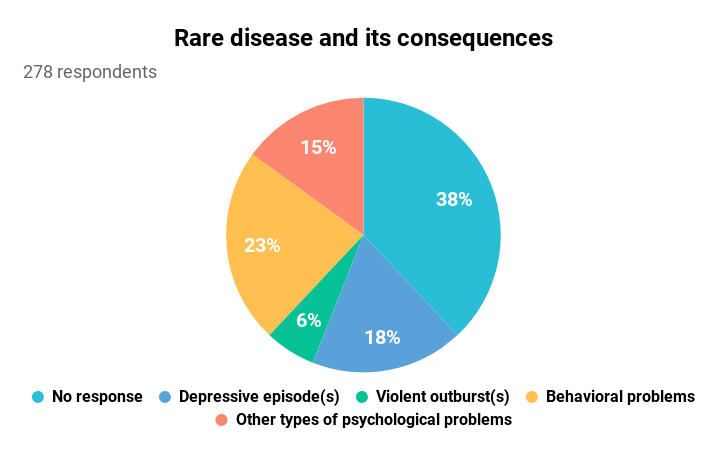Rare Disease Day: Isolation and psychological impact, let's talk about it!
Published 28 Feb 2021 • By Clémence Arnaud
To mark Rare Disease Day on 28 February, we wanted to focus on the psychological consequences rare diseases can cause in the lives of patients.
How to overcome isolation when living with a rare disease? How to live well with a rare disease? What are some ways to reduce the psychological impact of rare diseases on an individual?
Find out in our article below!

Rare diseases: diverse and complex pathologies
For a condition to be classified as a rare disease, it must affect less than one person in 2,000. These diseases will affect the patient's life in a brutal or progressive way on a physical, intellectual, functional or sensory level. The small number of patients and the heterogeneity of symptoms make care and therapeutic advancements even more difficult.
The problem of these conditions can go as far as the patient wanting to hide the disease from his or her family, friends or professional circle. It is estimated that a little more 30% of rare disease patients or parents of affected children have felt the need to hide the condition from their family and friends.
Psychological impact
The French Rare Disease Observatory (L'observatoire des maladies rare) is a study that makes it possible to understand the impact of rare disease on patients' lives. In terms of the psychological burden of rare disease, they have observed the following trends:
- More than 1/3 of patients are offered psychological counselling
- Young patients (from 2 to 17 years old) are offered psychological care more often than adult patients
These psychological impact can manifest itself in different ways: depression, violent outbursts or behavioural problems.

Source: Observatoire des maladies rares (2015)
According to a study by the European Rare Barometer, 37% of respondents say that they are often (19%) or very often (18%) unhappy or even depressed, compared to 11% in the general population. Lack of understanding of their pathology, lack of support, stress related to the delay in diagnosis and the emotional weight of the pathology are some of the factors leading to psychological problems. Changes in the body caused by the condition also play a role in patients' mental health.
A Carenity member in the UK wrote: "I am angry and frustrated, I can't do what I used to do and I sometimes feel weak. I just want to be myself again".
Isolation
Rare diseases are often not well known among the general population and lead to real problems in patients' everyday lives. Patients can feel especially isolated.
Out of 438 respondents in the Rare Disease Observatory study, 48% said they felt a strong feeling of isolation.
Family and emotional isolation
This feeling of isolation can be caused by family tensions: 72% of the 334 people questioned by the French Observatory for the Sick said they felt some tension in their relationship, strong enough tension in some cases to lead to divorce or separation.
Professional isolation
The professional world is a complicated one for patients suffering from rare chronic illnesses. Indeed, the impact of these conditions on working hours can be significant and can be a barrier to employment.
According to the European Rare Barometer study, 21% of the 1095 respondents had 90 days or more of absence from work due to their medical appointments. This corresponds to a trimester of work absenteeism. Many people are therefore faced with the choice of working part-time: the proportion of people with rare chronic illnesses working part-time is higher than in the general population.
For young patients, this can lead to early drop-out from school or lower professional ambitions.
"I had to leave my full-time job to take a part-time job from home", said a member of Carenity US.
Social isolation
Leisure time and recreations are also problematic for rare disease patients. Indeed, both patients and carers often need to reorganise their time to adapt to the needs caused by the disease. In a 2018 European study, 42% of people surveyed devoted more than 2 hours a day to care related to their chronic rare illness.
Ways to improve quality of life
Many organisations exist to reduce isolation, such as patient associations (rare disease alliances, etc.), sports clubs adapted according to the pathology, etc. Social networks or patient forums also enable discussion about illness.
Improving care pathways and access to health information for patients is also important to reduce the mental burden that the disease can have. Rare à l’écoute ("Rare Listening"), for example, is a French podcast dedicated to rare diseases, providing reliable and understandable information for all.
Was this article helpful to you?
Share your thoughts and questions with the community in the comments below!
Take care!

 Facebook
Facebook Twitter
Twitter




